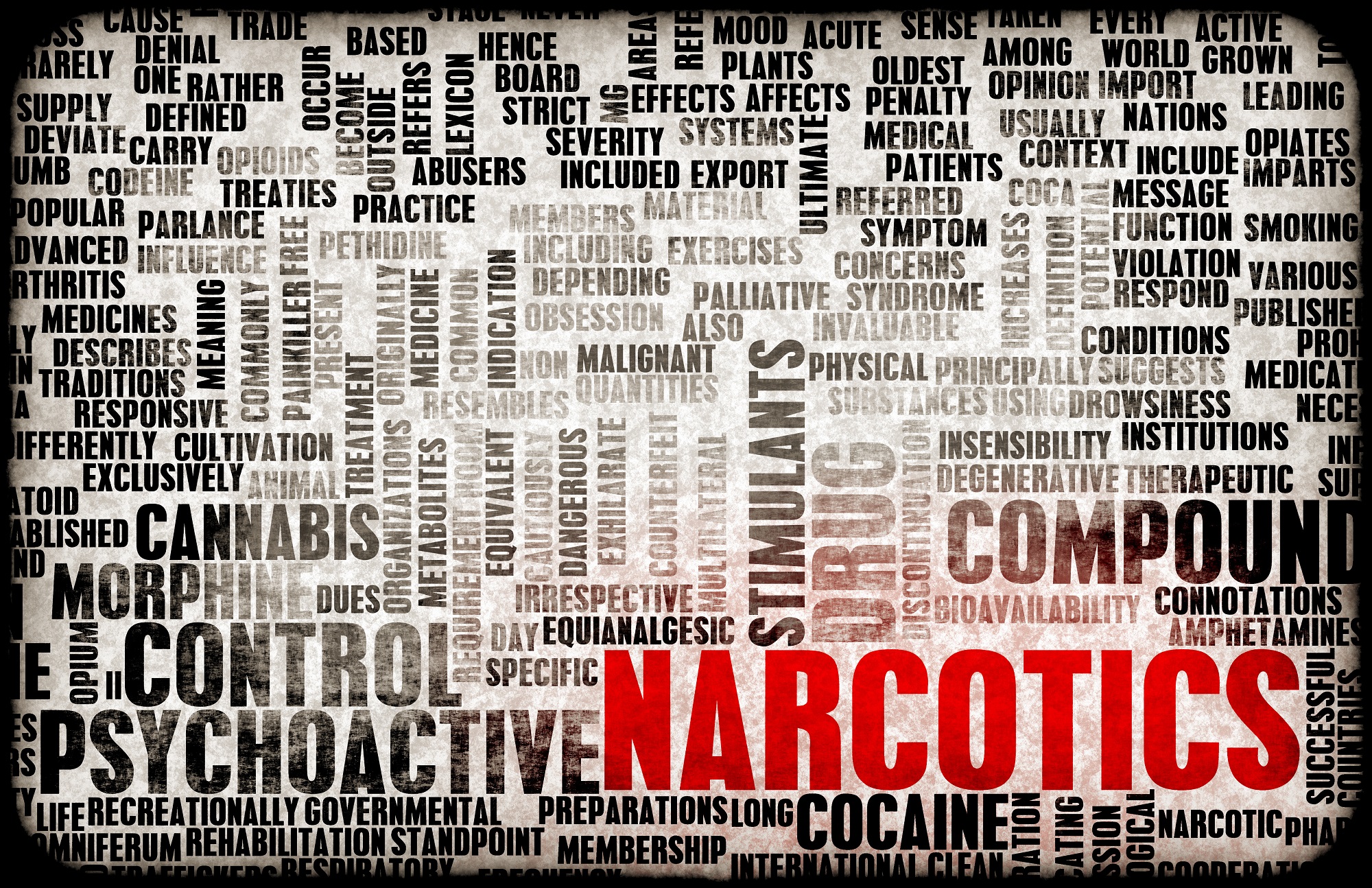NARCOTICS ADDICTION REHAB & TREATMENT
Sections: What Are Narcotics | Types | Are They Addictive? | Effects | Signs & Symptoms | Withdrawal | Treatment | Hope
| HELPFUL ARTICLES |
| Changing How Addiction is Perceived |
| Gateway Drugs: What You Need to Know: Part I |
| Gateway Drugs: What You Need to Know: Part II |
| Signs of Narcotics Addiction |
Yellowstone Recovery in Southern California is a trusted narcotics addiction rehab facility. If you or a loved one are addicted to narcotics, the information on this page may give you more insight into the issue.
WHAT ARE NARCOTICS?
Narcotics are highly addictive drugs that are used for pain relief and, in some cases, for their sedative effects. The term “narcotic” originally stems from the Greek word for stupor, reflecting these substances’ ability to dull the senses and relieve pain. However, the definition and usage of the term “narcotic” vary significantly depending on whether you’re referring to the official definition or colloquial usage.
In the context of the Drug Enforcement Administration (DEA) and other regulatory bodies, “narcotics” specifically refers to opium, opium derivatives, and their semi-synthetic substitutes. These substances are tightly regulated due to their high potential for abuse and addiction. In this official capacity, narcotics include drugs like morphine, heroin, and oxycodone, which are known for their potent analgesic (pain-relieving) properties.¹
Conversely, in colloquial usage, the term “narcotic” has been broadened to include a wide range of controlled substances that can induce sleep or alter mood and consciousness, including some that are not opioids, such as amphetamines, benzodiazepines, stimulants, sedatives, and hallucinogens.
As we use the term today, almost any substance of abuse can be referred to as a narcotic. This discrepancy between the DEA definition and colloquial usage can lead to confusion, as the term may be used differently by law enforcement, healthcare professionals, and the general public.
Narcotics, particularly opioid narcotics, are dangerous for several reasons related to their potent effects on the human body and brain, as well as their high potential for abuse and addiction.
TYPES OF NARCOTIC DRUGS

Because nearly any prescription or illicit drug of abuse can be considered a narcotic, the category covers dozens of drug types. The following are just a few examples of popular narcotics:
- Methamphetamines (meth)
- MDMA (Ecstasy, Molly)
- Alprazolam (Xanax®)
- Cocaine/crack cocaine
- Heroin
- Adderall
- Fentanyl
- Morphine
- Hydrocodone
- Codeine
- Methadone
- Tramadol
ARE NARCOTICS ADDICTIVE?
Very much so. In general, narcotics are highly addictive drugs that pose a significant risk of addiction to those who use them, whether for medical purposes or recreationally. The characteristics that make these substances effective in pain management also contribute to their high potential for addiction.
Individuals using addictive narcotics, even if they initially follow a prescription for legitimate pain relief, may find themselves needing higher doses to achieve the same effects, a phenomenon known as tolerance. This escalating use can quickly transition into narcotic addiction, characterized by a compulsive need to use the drug despite harmful consequences to one’s health and relationships.
Narcotic addiction is a complex condition that can affect anyone, transcending age, socioeconomic status, and lifestyle. It’s marked by intense drug cravings, withdrawal symptoms upon cessation, and a persistent pattern of drug-seeking behavior. The risk of addiction can vary depending on the duration of use, and individual factors such as genetics and personal history of substance abuse.
One key factor contributing to the risk of addiction is the type of narcotic used. Because “narcotics” refers to a wide range of substances, the risk of addiction depends on the type of drug being abused. In general, opioids like painkillers are among the most addictive substances, while hallucinogens like LSD and mescaline do not necessarily cause the user to become physically dependent, but can create a strong psychological dependency.
The more potent a narcotic is, the higher its potential for addiction. For instance, fentanyl is far more potent than morphine, and for that reason has a much higher potential for addiction. Potent narcotics can produce intense euphoria that tends to reinforce drug-taking behavior.
Narcotics that act quickly also tend to have a higher addictive potential. For example, heroin, which can produce effects within minutes when injected, has a high potential for addiction partly due to its rapid onset of action.
The Physiological Cause of Narcotics Addiction
The exact mechanism of addiction varies by drug, but most narcotic addictions begin with changes in brain chemistry. Addiction is deeply rooted in the physiological changes that these substances induce in the brain’s structure and function. At the core of narcotic addiction lies the drug’s interaction with the brain’s opioid receptors. These receptors are part of a complex neural network responsible for regulating pain and addictive behaviors.
When addictive narcotics bind to these opioid receptors, they trigger the release of dopamine. This release creates a euphoric sensation, which is commonly referred to as a “high.” Over time, with repeated exposure to narcotics, the brain’s natural ability to produce and regulate dopamine and other neurotransmitters is altered. The brain begins to rely on the narcotic to stimulate pleasure and reward pathways, diminishing its own capacity to generate these feelings naturally.
This physiological adaptation leads to tolerance, where higher doses of the narcotic are required to achieve the same euphoric effect, and dependence, where the absence of the drug causes uncomfortable or even painful withdrawal symptoms. The individual may then use the narcotic compulsively to avoid withdrawal and to seek the drug-induced euphoria, thereby perpetuating the cycle of addiction.
Moreover, the changes in brain function can affect areas involved in judgment, decision-making, learning, memory, and behavior control. This can lead to the prioritization of drug use over other activities and responsibilities, further entrenching the patterns of addiction.
For narcotics that don’t cause a true chemical addiction, a person may still become dependent on the drug as a coping mechanism.
THE EFFECTS OF NARCOTICS ON THE BRAIN AND BODY
Narcotic drugs can have a variety of positive and negative effects, such as the following:
- Pain relief
- Relaxation, drowsiness
- Pleasurable feelings (the “high”)
- Nausea, vomiting
- Distorted senses
- Hallucinations
- Extreme body temperatures
- Changes to breathing and heart rate
- Anxiety, paranoia
- Slowed or impaired movement
NARCOTIC ADDICTION SIGNS

There are several behavior signs that may serve as red flags of narcotic addiction. Common narcotic addiction signs include the following:
- Agitated, erratic behavior
- Deterioration of health and appearance
- Visible signs of use (track marks, sores, tooth damage)
- Seeing several doctors (to obtain prescription pills)
- Problems with work, relationships, and finances
Bear in mind that not all users will display all these narcotic addiction signs.
NARCOTICS WITHDRAWAL SYMPTOMS
When narcotics are withheld, uncomfortable symptoms begin to occur. Different types of drugs are associated with different withdrawal experiences, but the following are some common symptoms:
- Sweating, chills
- Headache
- Nausea, vomiting
- Restlessness
- Increased heart rate
- Loss of appetite
- Cravings
GETTING HELP FOR NARCOTICS ADDICTION
Because narcotics are highly addictive drugs, it is extremely difficult to quit without professional help. Even for the most strong-willed of individuals, the discomfort and cravings of withdrawal can be incredibly difficult to withstand. Unfortunately, willpower is often insufficient.

With the help of a narcotics addiction treatment program, you can go through narcotics detox in a safe, medically monitored environment and receive the expert guidance and resources you need to be free from addiction and start a new life of sobriety.
FIND HOPE AT YELLOWSTONE RECOVERY
It’s time to stop the cycle of cravings and illness. At Yellowstone Recovery in Southern California, our addiction recovery experts can help you break free from narcotic addiction and get back to living your life. Call us today at (888) 418-4188.
Sources
- Treatment Options
- Program Curriculum
- Program Services








